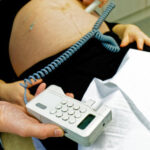Are you wondering how long to wait before taking a pregnancy test? Knowing the right time to test is crucial in obtaining accurate results. Understanding your menstrual cycle plays a vital role in determining the best time to take a pregnancy test. Early signs and symptoms of pregnancy can also help guide you on when it’s appropriate to consider testing.
There are various types of pregnancy tests available, each with its own level of sensitivity and accuracy. Factors such as the type of test used and timing can influence the reliability of results. It’s essential to wait for an ideal timeframe after conception before testing to ensure the most accurate outcome.
When should you take a pregnancy test after a missed period? This is considered one of the most reliable times to test for pregnancy. By following best practices and tips for accurate results, you can increase the likelihood of obtaining a clear and conclusive outcome. Let’s delve deeper into understanding when to take a pregnancy test for the best possible results.
Understanding the Menstrual Cycle
The menstrual cycle plays a crucial role in determining when to take a pregnancy test. Understanding the length of your menstrual cycle can help you pinpoint the most accurate time to test for pregnancy. Typically, the menstrual cycle is counted from the first day of one period to the first day of the next period. The average menstrual cycle is around 28 days, but it can vary from person to person.
To accurately determine when to take a pregnancy test, you should track your menstrual cycle consistently. If your cycle is regular and around 28 days, you can calculate when you are most fertile and likely to conceive. Ovulation usually occurs about 14 days before your next expected period, so this is typically considered the best time for conception. If you have irregular cycles, it may be more challenging to predict when ovulation occurs and when to test for pregnancy.
When considering how long to wait before taking a pregnancy test, it is important to remember that testing too early can result in a false negative result. Pregnancy tests work by detecting levels of human chorionic gonadotropin (hCG) hormone in urine or blood. This hormone is produced after implantation occurs, which usually takes place about 6-12 days after conception.
Testing too early before there is enough hCG present in your body can lead to inaccurate results. It is recommended to wait until after you have missed your period to ensure the most reliable outcome.
- Track your menstrual cycle consistently
- Understand when ovulation typically occurs
- Avoid testing too early for accurate results
Early Signs and Symptoms of Pregnancy
When it comes to pregnancy, early detection is key to receiving proper care and making important decisions. One of the first indicators that you may be pregnant includes experiencing symptoms like morning sickness, fatigue, breast tenderness, and frequent urination.
These signs can start showing up as early as a few days after conception, although some women may not experience any symptoms at all in the beginning. If you start noticing these changes in your body, it might be time to consider taking a pregnancy test.
To determine when is the right moment to take a pregnancy test based on your symptoms, it is essential to have a good understanding of your menstrual cycle. Most healthcare professionals recommend waiting until after you have missed your period before testing for pregnancy. However, if you are experiencing early symptoms or suspect that you might be pregnant even before missing your period, some sensitive pregnancy tests on the market may be able to give you accurate results even earlier.
If you are unsure whether it is too soon to take a pregnancy test based on your symptoms or suspected conception date, it would be best to wait for at least one week after having unprotected sex before testing. This waiting period allows enough time for the levels of hCG hormone in your body to rise and be detected by a home pregnancy test accurately. Always follow the instructions included with the test kit for the most reliable results.
Types of Pregnancy Tests Available
When it comes to choosing a pregnancy test for early detection, there are two main types available: urine-based tests and blood tests. Urine-based tests are the most common and can be purchased over the counter at pharmacies. These tests detect the presence of human chorionic gonadotropin (hCG), a hormone produced during pregnancy, in your urine. They are convenient, affordable, and can be taken at home.
On the other hand, blood tests for pregnancy are more sensitive and can detect lower levels of hCG than urine tests. There are two types of blood tests: quantitative hCG testing, which measures the exact amount of hCG in your blood, and qualitative hCG testing, which simply confirms if hCG is present or not. Blood tests are typically done at healthcare providers’ offices and may require a longer wait time for results compared to urine-based tests.
Choosing the Right Test for Early Detection
When deciding which type of pregnancy test to choose for early detection, consider your specific needs and preferences. If you want to test as soon as possible after conception, a blood test may be more accurate. However, if you prefer the convenience of testing at home or want to save money, a urine-based test may be the better option. It’s essential to follow the instructions carefully on whichever test you choose to ensure accurate results.
Factors That Influence Accuracy of Pregnancy Tests
The accuracy of a pregnancy test can be influenced by various factors, which is why it is important to know when to wait before taking one. One key factor to consider is the timing of the test in relation to ovulation and conception.
For the most accurate results, it is recommended to wait until after you have missed your period to take a pregnancy test. This ensures that there is a sufficient amount of hCG (human chorionic gonadotropin) hormone in your system for the test to detect.
Additionally, the sensitivity of the pregnancy test can also impact its accuracy. Some tests are designed to detect lower levels of hCG earlier in pregnancy, while others may require higher levels of the hormone to show a positive result. If you are eager to test early, it is essential to choose a highly sensitive pregnancy test for better chances of detecting a potential pregnancy sooner.
Moreover, certain medications or medical conditions can affect the accuracy of a pregnancy test. It is advisable to consult with a healthcare provider if you are unsure about when to take a pregnancy test due to any underlying health issues or if you are taking medications that may interfere with the results. Waiting for the optimal time frame based on your menstrual cycle and possible conception date can increase the reliability of the test outcome.
| Factors Influencing Accuracy | When to Consider |
|---|---|
| Ovulation and Conception Timing | Wait until after missed period |
| Pregnancy Test Sensitivity | Choose highly sensitive tests for early detection |
| Medications and Health Conditions | Consult healthcare provider for guidance |
How Soon Can You Take a Pregnancy Test After Conception
After conception, many women wonder about the ideal time frame for taking a pregnancy test to get accurate results. Typically, it is recommended to wait at least one to two weeks after conception before testing. This waiting period allows the body enough time to produce a sufficient amount of the pregnancy hormone hCG, which is detected by most home pregnancy tests. Testing too early may result in a false negative, leading to unnecessary confusion and disappointment.
It is important to remember that every woman’s body is different, and hCG levels can vary from person to person. Some women may have higher levels of hCG earlier on in their pregnancies, while others may take longer to build up detectable levels of the hormone. Factors such as the timing of ovulation, implantation, and individual hormonal levels can all impact how quickly hCG is produced and detected in a pregnancy test.
For the most accurate results, consider using an early detection pregnancy test that is specifically designed to detect lower levels of hCG in the earliest stages of pregnancy. These tests can provide accurate results as soon as 6-8 days after ovulation, giving you a better chance of detecting a pregnancy early on. However, it is still essential to follow the instructions carefully and understand how soon after conception you are likely to get reliable results with your chosen test.
| Factor | Impact on Pregnancy Test Accuracy |
|---|---|
| Hormonal Levels | Can affect how quickly hCG is produced and detected |
| Ovulation Timing | Determines when conception may have occurred |
| Type of Test Used | Some tests are more sensitive and can provide early detection |
When to Take a Pregnancy Test After Missed Period
After a missed period, women often wonder about the best time to take a pregnancy test for the most reliable results. It is essential to understand that the accuracy of a pregnancy test can vary depending on various factors, including the type of test used and when it is taken. Taking a pregnancy test too early may result in a false negative, leading to confusion and disappointment.
Understanding the Ideal Timing
The ideal time to take a pregnancy test after a missed period is typically about one week after the expected date. This timeframe allows for sufficient levels of hCG (human chorionic gonadotropin), the hormone produced during pregnancy, to be detectable in urine or blood samples. Testing too early might not provide accurate results as hCG levels may not be high enough to register on the test.
When to Consider Factors Influencing Accuracy
Factors such as the sensitivity of the pregnancy test and individual variations in hCG production can also influence the accuracy of results. Some tests claim to detect pregnancy earlier than others due to their higher sensitivity levels. Additionally, certain medications or medical conditions can affect hCG levels in the body, potentially impacting the accuracy of the test results. It is crucial to consider these factors when determining when to take a pregnancy test after a missed period.
Seeking Professional Guidance
If there is uncertainty about when to take a pregnancy test or if results are inconclusive, it is advisable to consult with a healthcare provider. They can provide guidance on timing and recommend further testing if necessary. By following recommended guidelines and waiting for an appropriate period after a missed period, individuals can increase the likelihood of obtaining accurate and reliable results from their pregnancy tests.
Tips for Accurate Results
In conclusion, knowing when to take a pregnancy test is crucial in ensuring accurate results. Understanding the menstrual cycle and early signs of pregnancy play a significant role in determining the appropriate time to test. It is essential to consider factors that influence the accuracy of the test, such as the type of test used and how soon after conception it can detect pregnancy.
When deciding how long to wait before taking a pregnancy test, it is important to keep in mind that some tests may be more sensitive and able to detect pregnancy earlier than others. Generally, it is recommended to wait at least one week after a missed period for the most reliable results. Testing too early can lead to false negatives, causing unnecessary confusion and anxiety.
Moreover, following tips for accurate results, such as using first-morning urine and closely following instructions provided with the test, can increase the likelihood of obtaining an accurate result. Ultimately, being informed about when and how to take a pregnancy test can help individuals navigate this important phase with confidence and clarity.
Frequently Asked Questions
How Soon Will a Pregnancy Test Read Positive?
A pregnancy test can typically read positive around 10-14 days after conception, depending on the sensitivity of the test. It is advisable to wait until you have missed a period for more accurate results.
Can I Take a Pregnancy Test After 5 Days?
Taking a pregnancy test after just 5 days may be too early to detect a positive result, as it usually takes at least 10-14 days post-conception for the hormone hCG to be present in high enough levels to be detected.
How Long Must You Wait Before Taking a Pregnancy Test?
It is recommended to wait until you have missed your period before taking a pregnancy test for more reliable results. Testing too early can lead to false negatives due to low levels of hCG hormone in the early stages of pregnancy.

Welcome to my fertility blog. This is a space where I will be sharing my experiences as I navigate through the world of fertility treatments, as well as provide information and resources about fertility and pregnancy.





